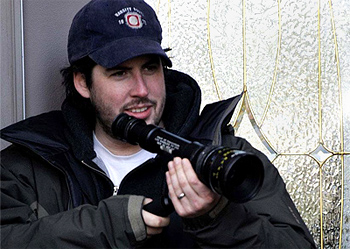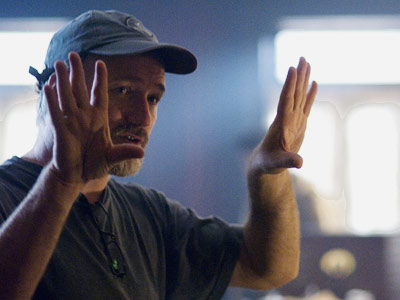Interstellar
November 13, 2014 Leave a comment
There are just some directors who shouldn’t attempt to do the mushy stuff. Play to your strengths, rather than make a half-baked story about parental responsibility, loss, and the enduring power of love. Christopher Nolan makes cold films, which isn’t necessarily a bad thing, considering his filmography contains multiple movies that rightfully deserved to be called masterpieces. But his films are not good at being sentimental, or expressing emotions beyond jealousy, ambition, or dogged perseverance. Any time Nolan’s films have attempted a romantic subplot, they’re always the most criticized and forgettable parts of his films (looking at you Scarlett Johansson in The Prestige, and Katie Holmes/Maggie Gyllenhaal in The Dark Knight trilogy). Sure, the guy can create movies about pining for a lost love (Inception, Memento), but if that love is still alive – fuhgeddaboutit. Interstellar handles the complex themes of family, love, and the “fifth dimension” through clunky, awkward dialogue that’s on par with some of the crap George Lucas wrote for Star Wars Episode Two: Attack of the Clones. This movie is hugely disappointing.
Earth is going through a transition period – humans can only grow corn. At least, I think that’s what was going on. It’s all very confusing, because characters still drink beer, the water system still seems to be functioning, and kids still have to take science classes in school. It really doesn’t seem all that bad. Meanwhile dust storms are commonplace, and archival footage of the folks who lived through these terrible times reminiscing are interspersed throughout the first quarter of the film, and then that faux documentary trope is all but forgotten to move into the outer reaches of space.
But anyhow, Matthew McConaughey ekes out his existence as a farmer (of corn) with two kids – the dull son and the precocious daughter – whilst living with his grizzled father-in-law who moonlights as the kids’ grizzled babysitter. The daughter thinks a ghost lives in her room, and some spoookky occurrences gets Dad to start believing in the supernatural force too. Yada yada yada, ghost leads McConaughey to hidden scientific outpost and off on a rollicking space adventure, minus the rollicking part and heavy on the scenes talking about wormholes, relativity, and the quantum mechanics of love (not joking). There’s also supposed to be some poignancy about leaving your family behind to do something IMPORTANT and how you sacrifice making memories with your kids because you’re doing IMPORTANT things. Yes, the film is romanticizing a world where “work-life balance” is severely tilted to the work side of things.
The biggest problem I have with the film is the motivations of every single character don’t make sense.
1. McConaughey
McConaughey’s character is the dad who has to leave his kids behind to “save the world” but is tortured by the anguish that he won’t get to see them grow up. But he doesn’t have to leave. This is the future, where robots exist, and despite McConaughey being the “best damn pilot NASA has ever seen and the only one who can captain this ship” in the film’s climatic piloting scene McConaughey asks the robot to fly the ship for him to make a difficult manoeuvre. Half of the adventure is spent on auto-pilot while the human passengers slumber peacefully in cryo-sleep. Yet McConaughey is such an integral part of the mission because he can fly so good. Ugh.
Also, he’s supposed to love his children so much, but about half-way through the movie he forgets he has a son. Just watch. There’s a point where he’s crying because both of his children are growing up in front of his eyes, and then later, he’s just concerned about his daughter. I don’t know, I just find it a little difficult to empathize with a character when he doesn’t even really care about his kids.
2. Unnamed Celebrity Cameo
Yep, a Hollywood star pops up later in the film. He has a plan that makes absolutely no sense when you take the three seconds to think about it. Let’s just say he tells a fib, and then when he could own up to that fib, he decides to make it 1000x worse, and I still can’t understand what his endgame was. Please explain if you know.
3. Everyone else
This is getting long-winded, so every character has an issue. The first “Red Shirt” character stands beside a door that leads to safety. Instead of walking through the door himself, he watches for several minutes as another character is carried through the door after travelling a mile away. The stupidity of the character overshadows any of the pathos of his death.
Jessica Chastain’s character is supposed to be brilliant, but can’t see through the weakest of twists. Casey Affleck’s character inexplicably wants his suffering wife and child to die on his farm, even when offered the chance of medical care and safety.
Interstellar uses wafer-thin characters, cheap storytelling twists (way too much deus ex machina for one movie), and dresses it up using first-rate special effects and long-winded technobabble to make us believe that we’re watching something important and goads us to care more about the character’s plights than they do themselves. I didn’t buy it.
Grade: C









